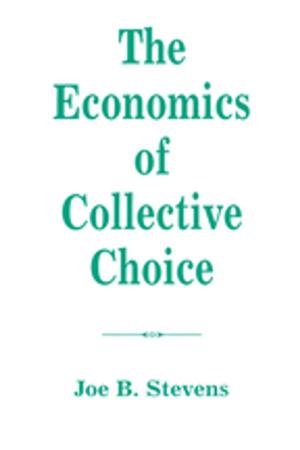Waste Matters
Urban margins in contemporary literature
Business & Finance, Economics, Sustainable Development, Nonfiction, Science & Nature, Science, Biological Sciences, Environmental Science, Social & Cultural Studies, Political Science, Government, Public Policy| Author: | Sarah K. Harrison | ISBN: | 9781317285960 |
| Publisher: | Taylor and Francis | Publication: | August 12, 2016 |
| Imprint: | Routledge | Language: | English |
| Author: | Sarah K. Harrison |
| ISBN: | 9781317285960 |
| Publisher: | Taylor and Francis |
| Publication: | August 12, 2016 |
| Imprint: | Routledge |
| Language: | English |
How do those pushed to the margins survive in contemporary cities? What role do they play in today’s increasingly complex urban ecosystems? Faced with stark disparities in human and environmental wellbeing, what form might more equitable cities take?
Waste Matters argues that contemporary literature and film offer an insightful and timely response to these questions through their formal and thematic revaluation of urban waste. In their creation of a new urban imaginary which centres on discarded things, degraded places and devalued people, authors and artists such as Patrick Chamoiseau, Chris Abani, Dinaw Mengestu, Suketu Mehta and Vik Muniz suggest opportunities for an inclusive urban politics that demands systematic analysis. Waste Matters assesses the utopian promise and pragmatic limitations of their as yet under-examined work in light of today’s pressing urban challenges.
This book will be of great interest to scholars and students of English Literature, Postcolonial Studies, Urban Studies, Environmental Humanities and Film Studies.
How do those pushed to the margins survive in contemporary cities? What role do they play in today’s increasingly complex urban ecosystems? Faced with stark disparities in human and environmental wellbeing, what form might more equitable cities take?
Waste Matters argues that contemporary literature and film offer an insightful and timely response to these questions through their formal and thematic revaluation of urban waste. In their creation of a new urban imaginary which centres on discarded things, degraded places and devalued people, authors and artists such as Patrick Chamoiseau, Chris Abani, Dinaw Mengestu, Suketu Mehta and Vik Muniz suggest opportunities for an inclusive urban politics that demands systematic analysis. Waste Matters assesses the utopian promise and pragmatic limitations of their as yet under-examined work in light of today’s pressing urban challenges.
This book will be of great interest to scholars and students of English Literature, Postcolonial Studies, Urban Studies, Environmental Humanities and Film Studies.















